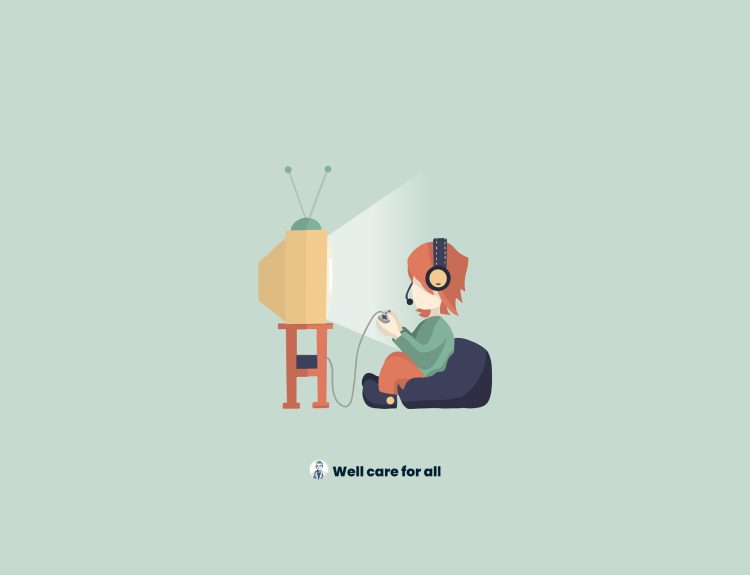
In today’s dynamic and temporary economy, freelancing allows you to be your boss and offers an opportunity for freedom and flexibility. But behind the scenes, it can also bring irregular income, isolation, and constant pressure to perform — all of which may result in chronic stress. You’re not alone if you’re a freelancer struggling to keep it all together. This guide contains valuable tips and strategies for stress management for freelancers so you can thrive personally and professionally.
What Causes Stress in Freelancers?
Unlike traditional employment, freelancing comes with unique stressors. Understanding these triggers is the first step to gaining control over them.
- Unpredictable income: Not knowing when your next paycheck will arrive can be mentally exhausting.
- Client inconsistency: Demanding clients, sudden project cancellations, and unclear expectations can create anxiety.
- Isolation: Working alone can result in feelings of loneliness and increase the risk of burnout.
- Work-life imbalance: Without a structured routine, personal time often gets sacrificed.
- Constant self-promotion: Freelancers must continually market themselves, which can feel overwhelming.
Recognizing the Signs of Stress
Stress doesn’t always shout — sometimes, it whispers through your body and behavior. Common signs include:
- Trouble sleeping
- Irritability or mood swings
- Lack of concentration
- Frequent headaches or stomach issues
- Feeling overwhelmed or anxious
Learning to spot these signals early helps you intervene before burnout sets in.
Effective Stress Management Techniques for Freelancers
Let’s examine science-backed strategies for reducing stress and maintaining a balanced lifestyle—the real game-changers for freelancers.
Create a Structured Routine
Leaving bed and diving into work is tempting, but chaos feeds stress. Design a daily schedule that mimics the structure of a 9-to-5 job—with breaks.
Tips:
- Set fixed start and end times.
- Include lunch and coffee breaks.
- Block time for deep work and admin tasks separately.
Build a Dedicated Workspace
Avoid working from the couch or bed. A designated workspace boosts focus and separates work from rest — a critical stress buffer.
What you need:
- Ergonomic chair and desk
- Natural light, if possible
- Noise-canceling headphones
- Clutter-free desk
Set Clear Boundaries
Just because you’re home doesn’t mean you’re always available. Set clear boundaries to protect your time and energy.
How to set them:
- Use a business email separate from your own.
- Communicate working hours to clients.
- Turn off notifications after hours.
Practice Mindfulness & Meditation
Mindfulness isn’t just trendy—it’s a proven method to reduce anxiety and improve focus. Even 10 minutes a day can make a significant difference.
Simple practices:
- Use guided meditation apps like Headspace or Insight Timer.
- Try mindful breathing before starting your workday.
- Pause and do a body scan when stress hits.
Stay Physically Active
Movement is medicine. Regular physical activity reduces cortisol (the stress hormone), improves mood, and boosts energy.
Ideas for busy freelancers:
- 20-minute walk during lunch break
- Desk yoga between tasks
- Short home workouts with no equipment
Connect with Others
Isolation is a silent stressor. Combat it with genuine connections—not just for business but also for emotional health.
Ways to stay connected:
- Join online freelancer communities
- Attend coworking spaces weekly
- Schedule regular calls with friends or fellow freelancers
Manage Finances Wisely
Money stress is real. Budgeting and having an emergency fund can significantly reduce your financial anxiety.
Financial hacks:
- Use tools like Mint or YNAB to track income/expenses.
- Save at least 20% of income for taxes and emergencies.
- Diversify your income streams when possible.
Learn to Say No
Taking every gig can backfire. Overloading yourself leads to poor quality work and high stress.
Saying no like a pro:
- Politely decline projects that don’t align with your goals.
- Use templates for turning down offers.
- Respect your bandwidth and mental health.
Mental Health Support for Freelancers
Don’t wait until you’re in crisis to seek support. Therapy isn’t just for emergencies — it’s a proactive tool.
What you can do:
- Find a virtual therapist through platforms like BetterHelp.
- Join support groups specifically for freelancers.
- Talk openly about your struggles with trusted peers.
FAQs About Stress Management for Freelancers
Q: How can freelancers avoid burnout?
A: Burnout can be prevented with structured routines, setting boundaries, taking regular breaks, and saying no to overcommitments.
Q: Is freelancing more stressful than a traditional job?
A: It can be due to financial uncertainty and isolation. However, with the correct stress management strategies, freelancing offers more balance and autonomy.
Q: What’s a quick fix when I’m overwhelmed during the workday?
A: Step away from your screen, breathe deeply for 2–3 minutes, or walk briskly. These activities help reset your mind.
Q: How do I deal with demanding clients without added stress?
A: Set clear expectations from the start, use contracts, communicate professionally, and don’t fear walking away from toxic clients.
Q: Can freelancing negatively impact mental health in the long term?
A: If unmanaged, yes. However, freelancers can maintain excellent mental health with community support, self-care, and professional help when needed.
Conclusion
Freelancing doesn’t have to be a stress trap. With proactive strategies like establishing a routine, staying active, connecting with others, and setting clear boundaries, you can embrace the freedom of freelance life while still prioritizing your mental health. Remember, being your boss means you’re also in charge of your well-being. So own it — and thrive!



